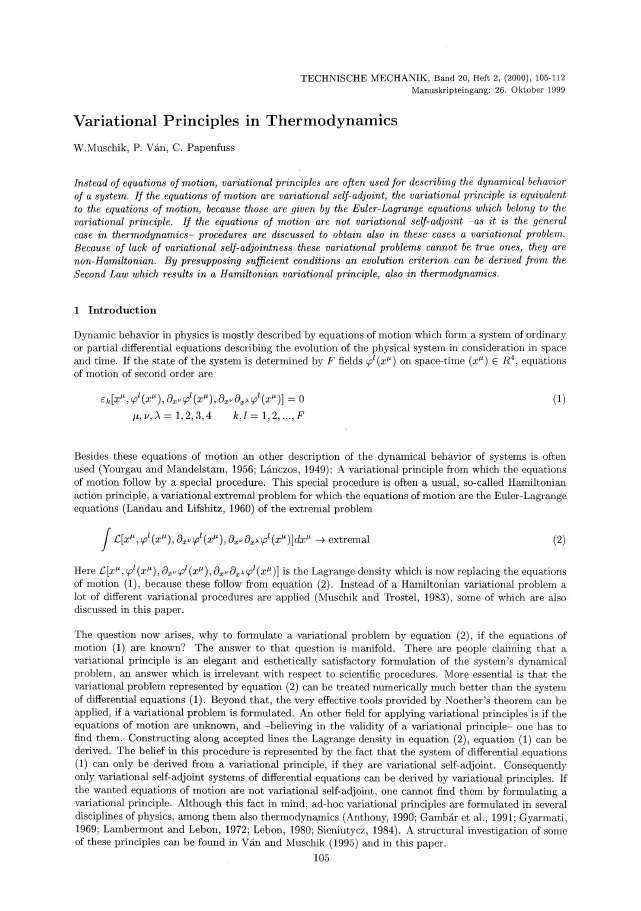Variational Principles in Thermodynamics
Abstract
Instead of equations of motion, variational principles are often used for describing the dynamical behavior of a system. If the equations of motion are variational self-adjoint, the variational principle is equivalent to the equations of motion, because those are given by the Euler-Lagrange equations which belong to the variational principle. If the equations of motion are not variational self-adjoint -as it is the general case in thermodynamics- procedures are discussed to obtain also in these cases a variational problem. Because of lack of variational self-adjointness these variational problems cannot be true ones, they are non-Hamiltonian. By presupposing suflicient conditions an evolution criterion can be derived from the Second Law which results in a Hamiltonian variational principle, also in thermodynamics.





